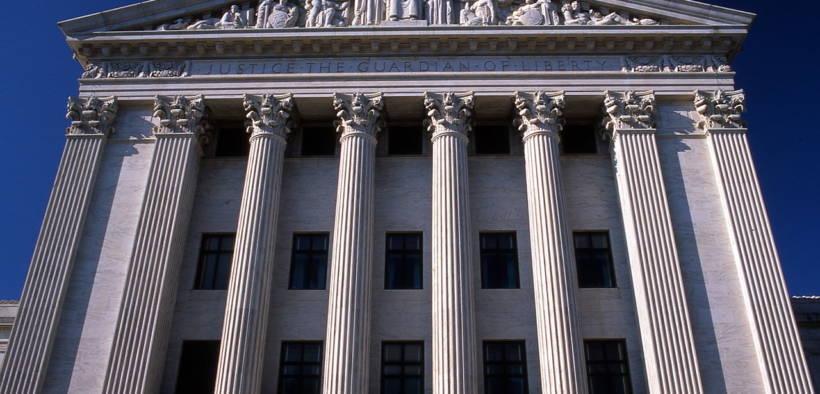Will The New Supreme Court Decision Finally Release Trump’s Tax Returns To The Public?

“No other president has retained ownership of a massive global business while serving, so this president’s self-enrichment and conflicts of interest represent a unique and unprecedented affront to the democracy.”
The Supreme Court rejected President Trump’s claims of total immunity in the ongoing battle to release his tax returns in a 7-2 decision on Thursday, sending two cases back to lower courts in a ruling that checks executive power but will most likely protect the president from revealing his financial records to the public before the November election.
Critics like economist Dean Baker have long argued that Trump’s family has illegally and unconstitutionally profited from maintaining a global real estate empire while he serves as president. Trump has spent almost a third of his presidency at his own resorts at taxpayer expense, according to Citizens For Ethics And Responsibility In Washington (CREW).
A lot of folks get really upset about someone getting $140 a month for food stamps. How should we feel about Trump’s golfing vacations at his resorts putting $100 million into his pockets? https://t.co/EJgwxky7OK
— Dean Baker (@DeanBaker13) November 7, 2019
Others have expressed concern about the ability of special interests to buy influence by staying at his hotels and resorts. According to CREW, 129 members of Congress and 143 foreign officials have visited a Trump business during his presidency, 128 events have been held at Trump properties by special interest groups, and 66 foreign trademarks have been granted to his businesses.
“No other president has retained ownership of a massive global business while serving, so this president’s self-enrichment and conflicts of interest represent a unique and unprecedented affront to the democracy,” said CREW’s executive director Noah Bookbinder.
Slate’s Mark Joseph Stern argues that the ruling was a skillful balancing act by Chief Justice John Roberts that restrains the president from total authority while maintaining his tax returns in legal impasse so that they cannot damage him before the November election.
Roberts’ compromises mean the American people probably won’t see Trump’s tax returns or financial records before November, if ever. But they also deny the president the sweeping immunity from grand jury and congressional subpoenas that he sought.
— Mark Joseph Stern (@mjs_DC) July 9, 2020
Despite the president’s hard-fought battle against the parties subpoenaing his tax returns, a pattern has emerged from earlier investigations into his financial history. A 2018 New York Times investigation found that Trump used “dubious tax schemes” to maintain the $413 million he inherited from his father. A separate Times investigation later found that Trump appeared “to have lost more money than nearly any other individual American taxpayer” between 1985 and 1994.
Last year, a ProPublica investigation found further evidence of tax fraud, based on repeated instances of Trump’s businesses filing different numbers that “made the buildings appear more profitable to the lender — and less profitable to the officials who set the buildings’ property tax.”
The New Yorker’s Adam Davidson similarly noted Trump’s history of business practices in a 2017 investigation: “A remarkable number of Trump’s business partners met one or more of the warning signs of troubling business practices: they had been investigated or convicted of fraud or other economic crimes; they were government officials in a position to abuse their power for financial gain; or they were secretive entities, hidden behind shell companies.”







